Navigating the Mental Challenges of Freediving
Freediving is as much a mental game as it is a physical one. While mastering breath-holding techniques and perfecting underwater form are crucial, the ability to overcome mental barriers is equally important for success and safety in this exhilarating sport. Explore the psychological aspects of freediving and how you can overcome mental barriers to enhance your performance and enjoyment of the sport.
Understanding Fear:
One of the most significant mental hurdles in freediving is managing fear. The primal instinct to breathe can trigger panic when submerged underwater, leading to rapid heart rate, shallow breathing, and ultimately, a shortened dive. By understanding the physiological responses to fear, freedivers can learn to control their reactions through relaxation techniques such as meditation and visualization.
Breath Holding and Relaxation:
In the depths of the ocean, relaxation is paramount. Tension not only wastes precious oxygen but also impairs buoyancy control and increases the risk of shallow-water blackout. This requires not only physical conditioning but also mental calmness. Progressive muscle relaxation, breath awareness, and positive affirmations can all aid in achieving a relaxed state both before and during dives.
Visualization and Mental Rehearsal:
Visualization is a powerful tool used by many athletes to improve performance – divers visualize each stage of the dive in vivid detail, help sharpen focus and prepare the mind for the challenges ahead. By mentally rehearsing your dives, visualizing each step from preparation to descent and ascent, you can improve your confidence and technique. Visualizing successful dives can also help you overcome any negative thoughts or doubts that may arise. Developing a pre-dive routine, including visualization, breathing exercises, and mental cues, can help athletes enter a focused state of flow before descending into the abyss.
Building Confidence:
Confidence plays a pivotal role in freediving, influencing performance and safety. Building confidence begins with proper training and gradually pushing personal limits under the guidance of experienced instructors. Visualization techniques can also be invaluable, helping freedivers mentally rehearse dives, anticipate challenges, and visualize successful outcomes. Over time, as divers accumulate experience and overcome obstacles, their confidence grows, enabling them to tackle deeper dives with greater assurance. Set achievable goals, celebrate small successes, and learn from setbacks to build a strong foundation of confidence in your abilities.
Buddy Confidence:
In addition to building confidence in your own abilities, having confidence that your team will ensure your safety will prove invaluable to your ability to relax and excel in your freediving abilities. Knowing that you can push your abilities safely because you have a vigilant safety, will make those abilities come much easier. Practicing safety drills regularly, every dive session, will ensure that those rescue skills that decay over time are always fresh.
 Staying Present:
Staying Present:
Freedivers learn to cultivate a state of calmness through mindfulness practices, focusing on the present moment and letting go of distractions. Freediving demands unwavering focus and concentration. Distractions, such as negative thoughts or external stimuli, can disrupt mental clarity and compromise safety. This state of mindfulness not only improves your performance but also enhances your overall experience underwater. Practice mindfulness in your daily life to develop this skill and apply it to your dives.
Overcoming Plateaus:
Like any sport, freediving presents periods where advancement appears to halt. These plateaus typically stem from mental rather than physical factors, necessitating patience, persistence, and an eagerness to embrace innovative techniques and methodologies to overcome them.
In the world of freediving, mastering the psychological aspects of the sport is just as crucial as honing physical skills. By understanding and overcoming your mental barriers, freedivers can unlock their true potential and experience the profound beauty of the underwater world. With practice, patience, and a deep understanding of the mind-body connection, every dive becomes an opportunity for growth, exploration, and self-discovery.

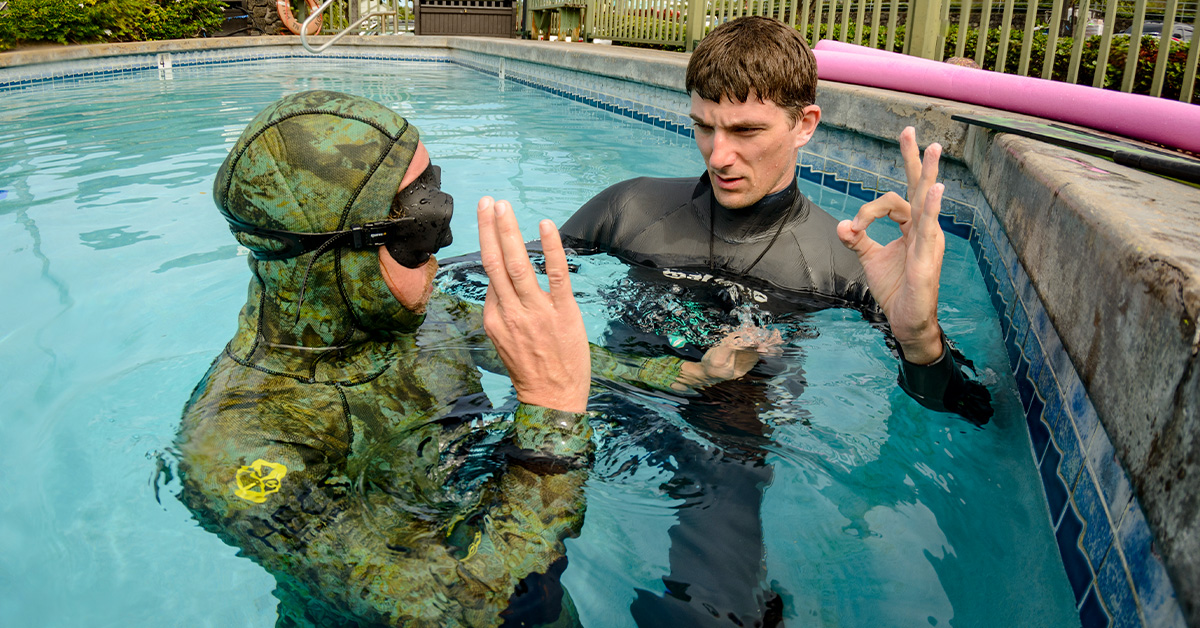
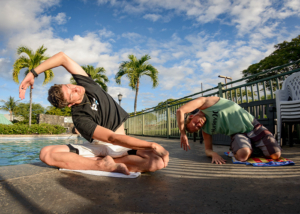

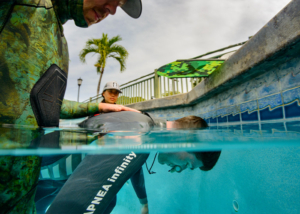 Staying Present:
Staying Present: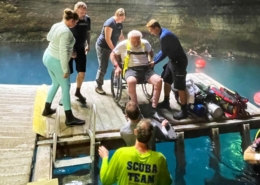






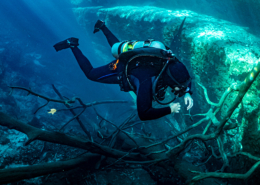
Deixe uma resposta
Want to join the discussion?Feel free to contribute!